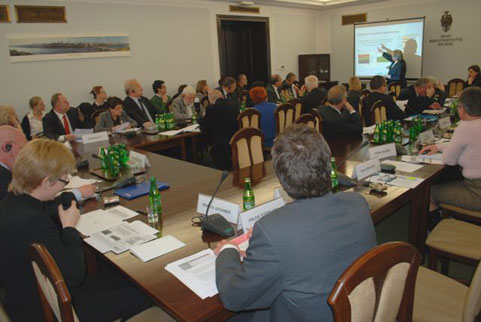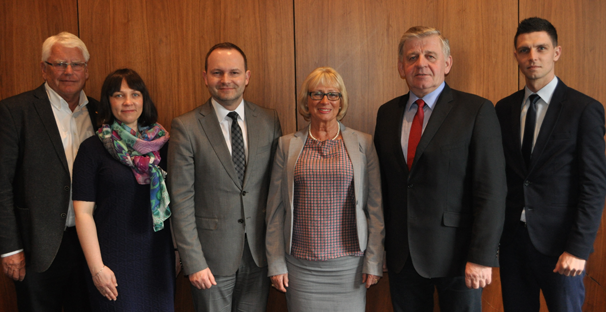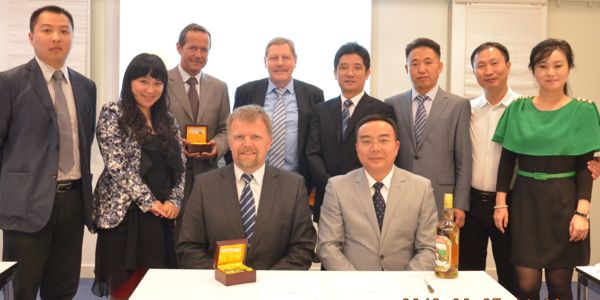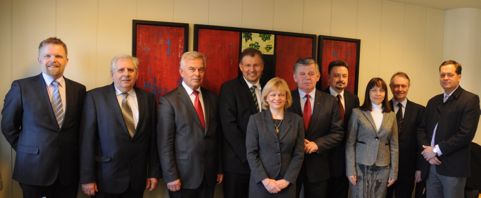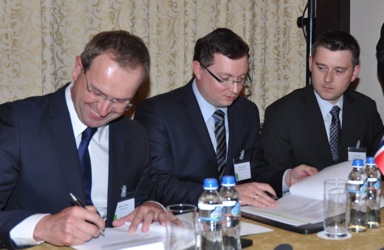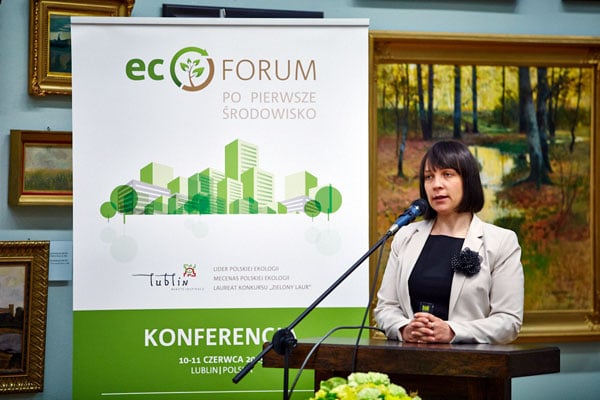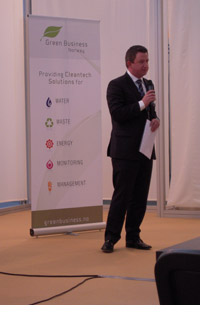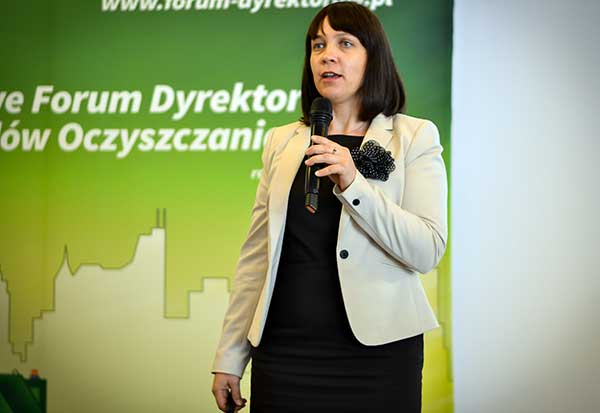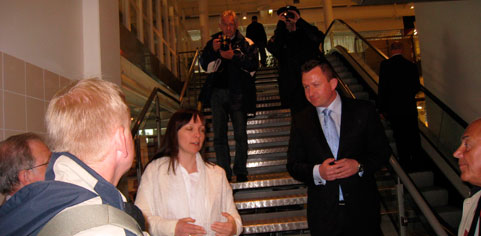Project partners from the Circular Based Waste Management – CBWM project presented their goals for the project and progress towards these at the conference.
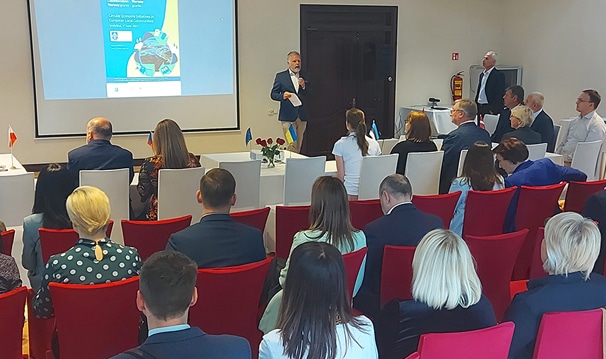
Mr. Virgilijus Radvilas highlighted the main lessons learned by Mažeikiai District Municipality’s participation in the project, which includes the importance of educating the public, particularly children and youth, and the active role of politicians in setting waste management goals and allocating funds. The feasibility study being carried out aims to reduce the environmental impact of waste and support local education institutions and communities in circular waste management activities. Study tours and webinars organised in the CBWM project have inspired ideas to achieve these goals.
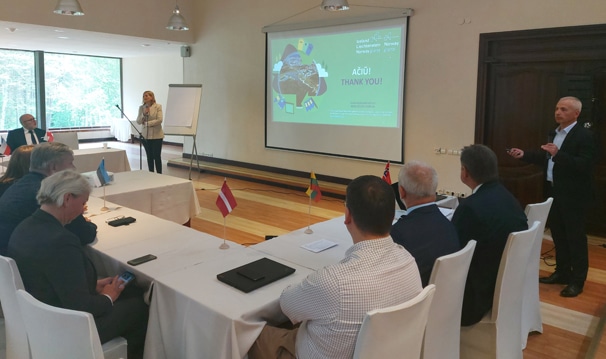
Ms. Maarit Nõmm from Paide Town Government, Estonia presented Paide’s goals of raising awareness about waste issues, particularly among children and youth. They are involving 5 schools in activities such as a photo competition, cooperation with a university on developing sustainable materials, and a monthly green column in the local paper. Future activities include pilot composting, a camp day, and a cooperation with Norwegian entity LOOP on clothing consumption.
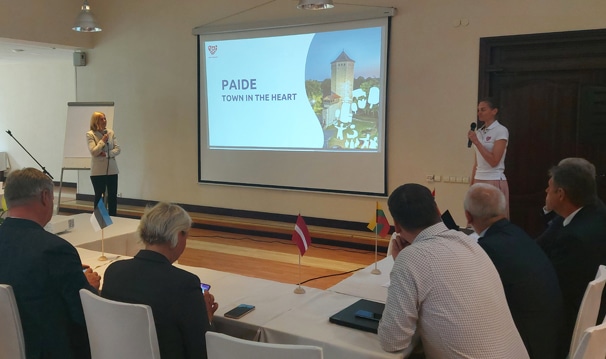
Mr. Vidimantas Domarkas, the Director of Telšiai Regional Waste Management Center, stressed the need for a change in mindsets towards a circular economy and highlighted the negative impact of single-use items, particularly single-use cups. He demonstrated the importance of this message by throwing a plastic cup on the floor, which elicited an immediate reaction of discomfort from the audience, emphasizing the need for awareness about the environmental impact of single-use items.
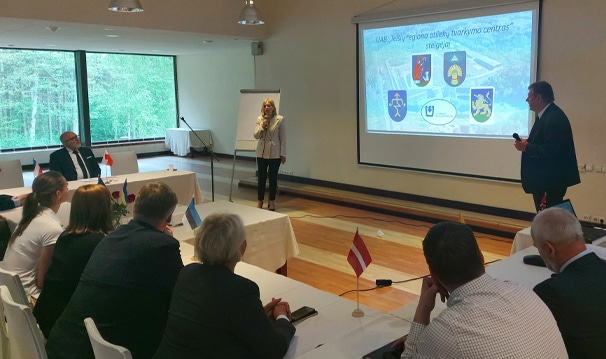
In response to the discarded cup, CEO of Green Business Norway, Mr. Thor Sverre Minnesjord, demonstrated the value of waste by offering cash for the cup and emphasized that waste can play an important and profitable role in the economy. He presented Norway’s Circular Economy Roadmap 2030, which aims to minimize waste, increase recycling, extend product lifespan, and balance reducing public fees, smart collection systems, and recycling/upcycling.
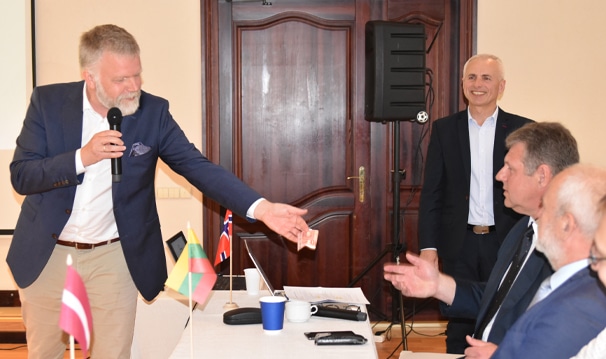
Lithuania’s sustainability and circular economy developments were presented by representatives from the Parliament of Lithuania and the Institute of Environmental Protection.
Further presentations were made on activities, priorities and progress related to implementing circular economy practices by guests from Mažeikiai’s, sister cities Havirov (Czech Republic), Płock (Poland) and Saldus (Latvia).
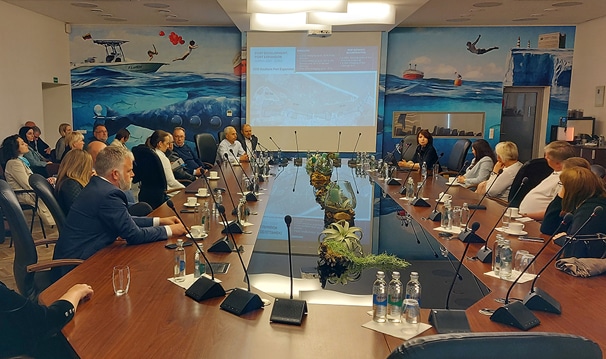
After the conference, delegates visited Klaipėda Port, the 5th largest port in the Baltic sea to learn about the plan developed to reduce port pollution by 2030. The plan identifies priorities for pollution reduction and mitigation measures and also includes a strategy for raising awareness on the environmental issues to be addressed.
The visit and conference were concluded by a meeting with the Mayor of Mažeikiai where the progress of the Circular Based Waste Management project was presented.
For more information about the event visit the project website here or contact thor@greenbusiness.no
The Circular Based Waste Management project is funded by Iceland, Liechtenstein and Norway through the EEA and Norway Grants Fund for Regional Cooperation.






















